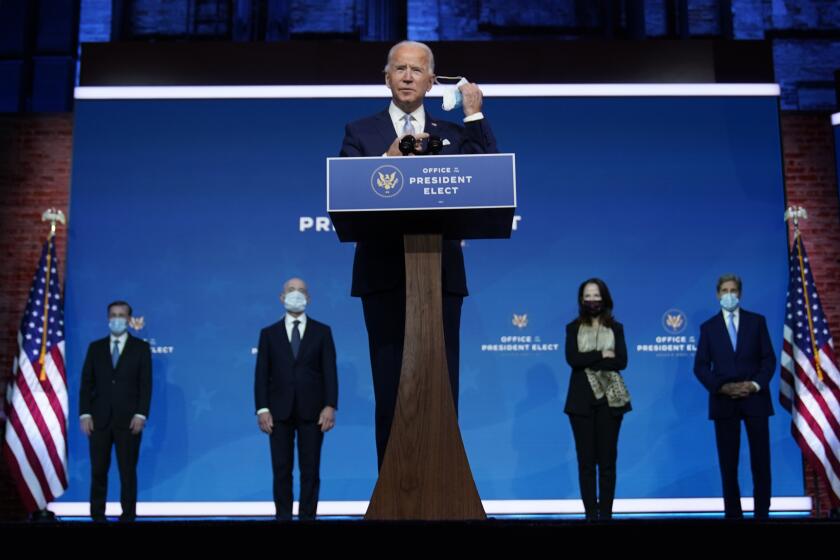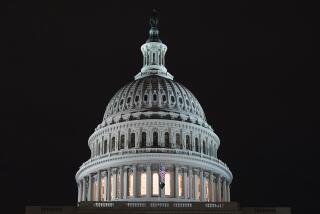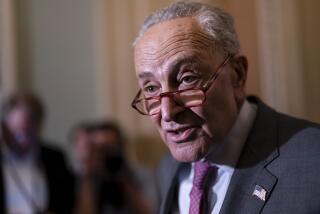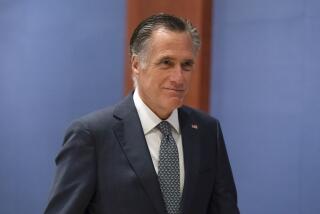Top Democrats swing behind bipartisan COVID-19 relief bill
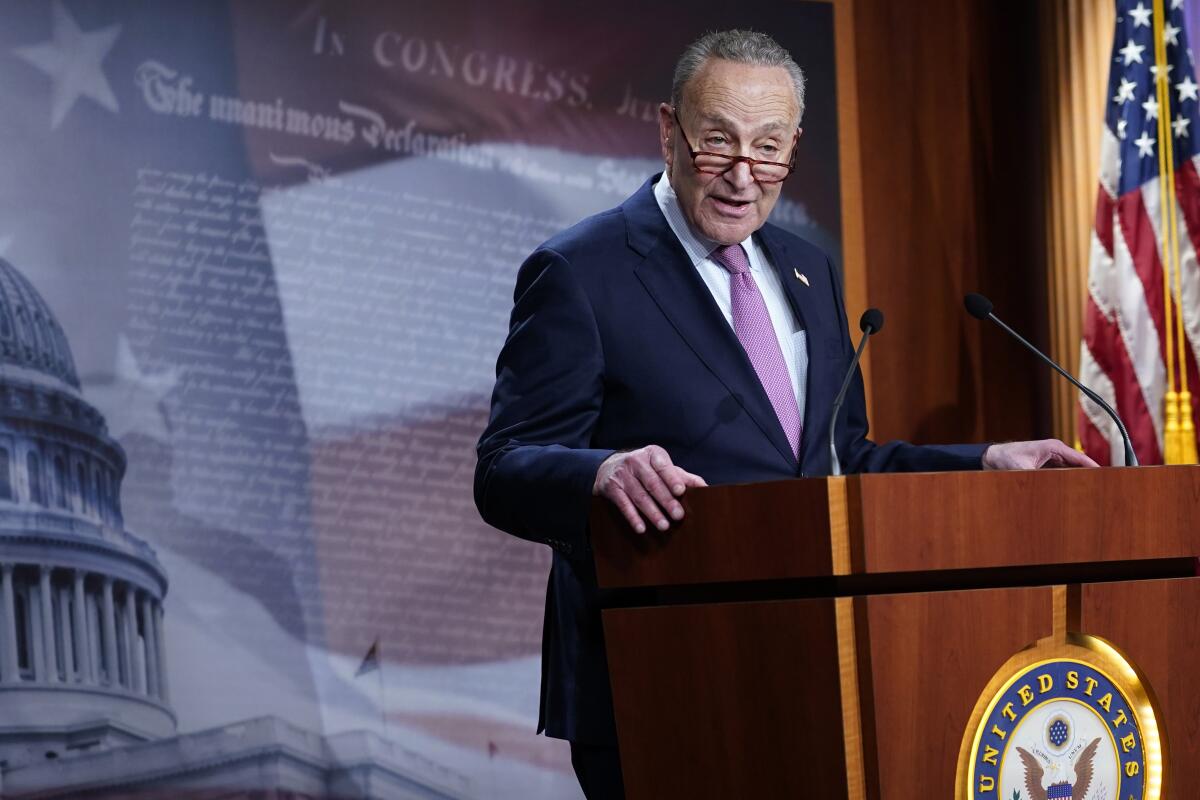
- Share via
WASHINGTON — Democratic leaders swung behind a bipartisan COVID-19 relief effort Wednesday, cutting their demands for a $2-trillion-plus measure by more than half in hopes of breaking a months-long logjam and delivering much-sought aid as a coda to a tempestuous congressional session.
House Speaker Nancy Pelosi (D-San Francisco) and Senate Majority Leader Charles E. Schumer (D-N.Y.) made the announcement in a joint statement. It was aimed at budging Senate Majority Leader Mitch McConnell (R-Ky.), who so far has been unwilling to abandon a $550-million Senate GOP plan that has failed twice this fall.
The Democrats embraced a $908-billion approach from moderate Sens. Joe Manchin III (D-W.Va.) and Susan Collins (R-Maine), among others. It would establish a $300-per-week jobless benefit, send $160 billion to help state and local governments, boost schools and universities, revive popular “paycheck protection” subsidies for businesses, and bail out transit systems and airlines.
“In the spirit of compromise we believe the bipartisan framework introduced by Senators yesterday should be used as the basis for immediate bipartisan, bicameral negotiations,” Pelosi and Schumer said in their statement. They said they would try to build upon the approach, which has support in the House from a bipartisan “problem solvers” coalition.
The new plan includes a liability shield for businesses and other organizations that have reopened their doors during the pandemic. It’s the first time Pelosi and Schumer have shown a willingness to consider the idea.
McConnell had dismissed the bipartisan offer Tuesday, instead aiming to rally Republicans around the $550-billion GOP proposal.
President-elect Joe Biden is calling upon lawmakers to pass a relief bill now, with more aid to come next year.
It’s unclear whether the flurry of activity will lead to progress. As time runs out on Congress’ lame-duck session and the Trump presidency, many Republicans won’t even acknowledge that President Trump has lost the election, and good faith between the two parties is in short supply.
The bipartisan group of lawmakers proposed a split-the-difference solution to the protracted impasse, hoping to speed overdue help to a hurting nation before Congress adjourns for the holidays. It was a sign that some lawmakers were reluctant to adjourn for the year without approving some pandemic aid.
Centrists such as Manchin and Collins hope to exert greater influence in a closely divided Congress during the incoming Biden administration.
Their proposal includes $228 billion to extend and upgrade “paycheck protection” subsidies for hard-hit businesses such as restaurants. It would revive a special jobless benefit, but at a reduced level of $300 per week rather than the $600 benefit enacted in March. State and local governments would receive $160 billion.
There’s also $45 billion for transportation, including aid to transit systems and Amtrak; $82 billion to reopen schools and universities; and money for vaccines and healthcare providers, as well as for food stamps, rental assistance and the U.S. Postal Service.
President-elect Joe Biden’s Goldilocks Cabinet picks underscore his deftness at hugging the center in politics and policy, as he tries to avoid the bitter partisanship that has hobbled recent presidents.
The new effort follows a split-decision election that delivered the White House to Democrats and gave Republicans down-ballot success, gaining seats in the Democratic-controlled House and perhaps retaining their Senate majority.
At less than $1 trillion, it is less costly than a proposal from McConnell this summer. He later abandoned that effort for a considerably less costly measure that failed to advance this fall.
Pelosi and Treasury Secretary Steven T. Mnuchin struggled over a relief bill for weeks before the November election, discussing legislation of up to $2 trillion. Senate GOP conservatives opposed their efforts, and Pelosi refused to yield on key points.
The bipartisan compromise is virtually free of detail so far but includes a McConnell priority: a temporary shield against COVID-19-related lawsuits against businesses and other organizations that have reopened during the pandemic.
His warnings of a wave of destructive suits hasn’t been borne out, and the provision is sure to draw opposition from the trial lawyers’ lobby, which retains considerable influence with Democratic leaders.
More to Read
Sign up for Essential California
The most important California stories and recommendations in your inbox every morning.
You may occasionally receive promotional content from the Los Angeles Times.
